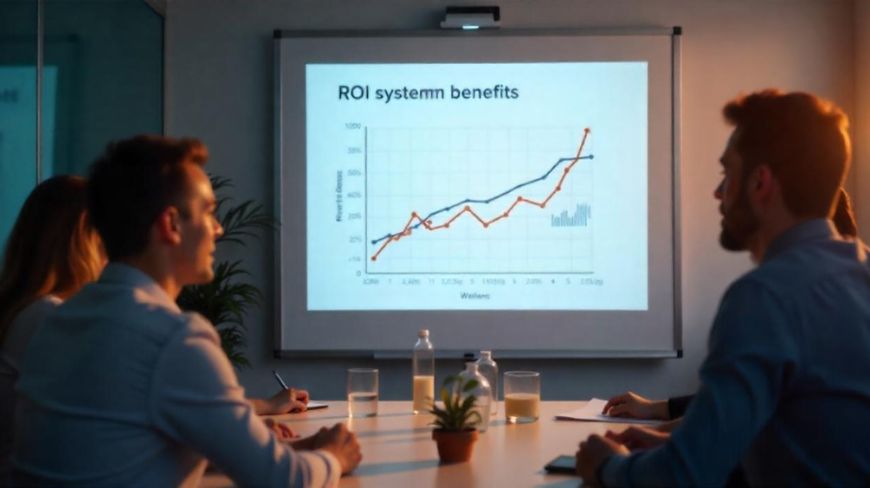Investing in a custom ERP (Enterprise Resource Planning) system is a significant decision for any business. Whether you're aiming to streamline operations, reduce costs, or improve data accuracy, the ultimate question remains: Is your ERP system delivering real value?
Measuring the Return on Investment (ROI) of your ERP solution helps answer this. It ensures your ERP isn't just another software expense but a powerful asset driving business growth.
In this blog, we’ll walk you through how to evaluate the success of your custom ERP system, the key metrics to consider, and why working with a reliable ERP partner like PiERP can make all the difference.
Why ROI Measurement Matters
Custom ERP systems are tailored to the unique needs of your organization. Because of their flexibility and scalability, they offer more value than off-the-shelf solutions—but only if implemented and utilized effectively.
Evaluating ROI allows you to:
- Justify the investment to stakeholders
- Identify areas of improvement
- Align ERP goals with business objectives
- Plan future ERP upgrades or expansions
Key Metrics to Measure ERP ROI
1. Operational Efficiency Gains
Track how much time and effort your ERP system saves across departments like inventory, finance, HR, and customer service.
Metrics to track:
- Time saved on routine tasks
- Reduced process cycle times
- Automated workflows replacing manual input
2. Cost Savings
Determine how the ERP has helped reduce costs—either directly or by eliminating inefficiencies.
Metrics to track:
- Decreased overtime expenses
- Reduced administrative costs
- Lower error-related costs (like order errors or data entry mistakes)
3. Revenue Growth
A good ERP system enables better decision-making and customer service, which can lead to higher revenue.
Metrics to track:
- Increase in sales volume
- Faster time to market
- Improved lead conversion rates
4. User Adoption & Productivity
How well your team is using the ERP also impacts its ROI. High adoption rates mean better utilization and more value.
Metrics to track:
- Number of active users
- Frequency of system use
- User satisfaction scores
5. Customer Satisfaction
If your ERP supports customer-facing operations, evaluate how it's impacting customer experience.
Metrics to track:
- Faster order fulfillment
- Fewer service complaints
- Higher customer retention
How to Calculate ERP ROI
The basic ROI formula is:
ROI (%) = [(Total Benefits – Total Costs) / Total Costs] × 100
Include in Total Costs:
- Software development/customization
- Licensing
- Implementation
- Training
- Support & maintenance
Include in Total Benefits:
- Cost savings
- Increased revenue
- Productivity improvements
- Reduction in errors or delays
Use this formula annually or over a specified ROI review period.
When to Evaluate ERP ROI
ERP ROI isn’t instant. It evolves over time. Here's a general timeline for evaluation:
- 3–6 months post-implementation: Early signs of adoption, basic process improvements
- 6–12 months: Operational efficiency and cost benefits
- 12–24 months: Strategic gains, revenue growth, customer experience impact
Conclusion
Measuring the ROI of your custom ERP system is not just about numbers—it’s about understanding the full value it delivers to your business. Whether you're assessing operational efficiency, cost savings, or customer impact, an accurate ROI evaluation helps you stay on track and evolve your ERP strategy effectively.
At PiERP, we believe that a custom ERP should deliver more than just functionality—it should drive measurable business success. Our ERP solutions are designed with ROI in mind, helping you achieve greater efficiency, visibility, and profitability.
Ready to see how a custom ERP can transform your business? Explore our ERP Solutions or get in touch with our support team today.






